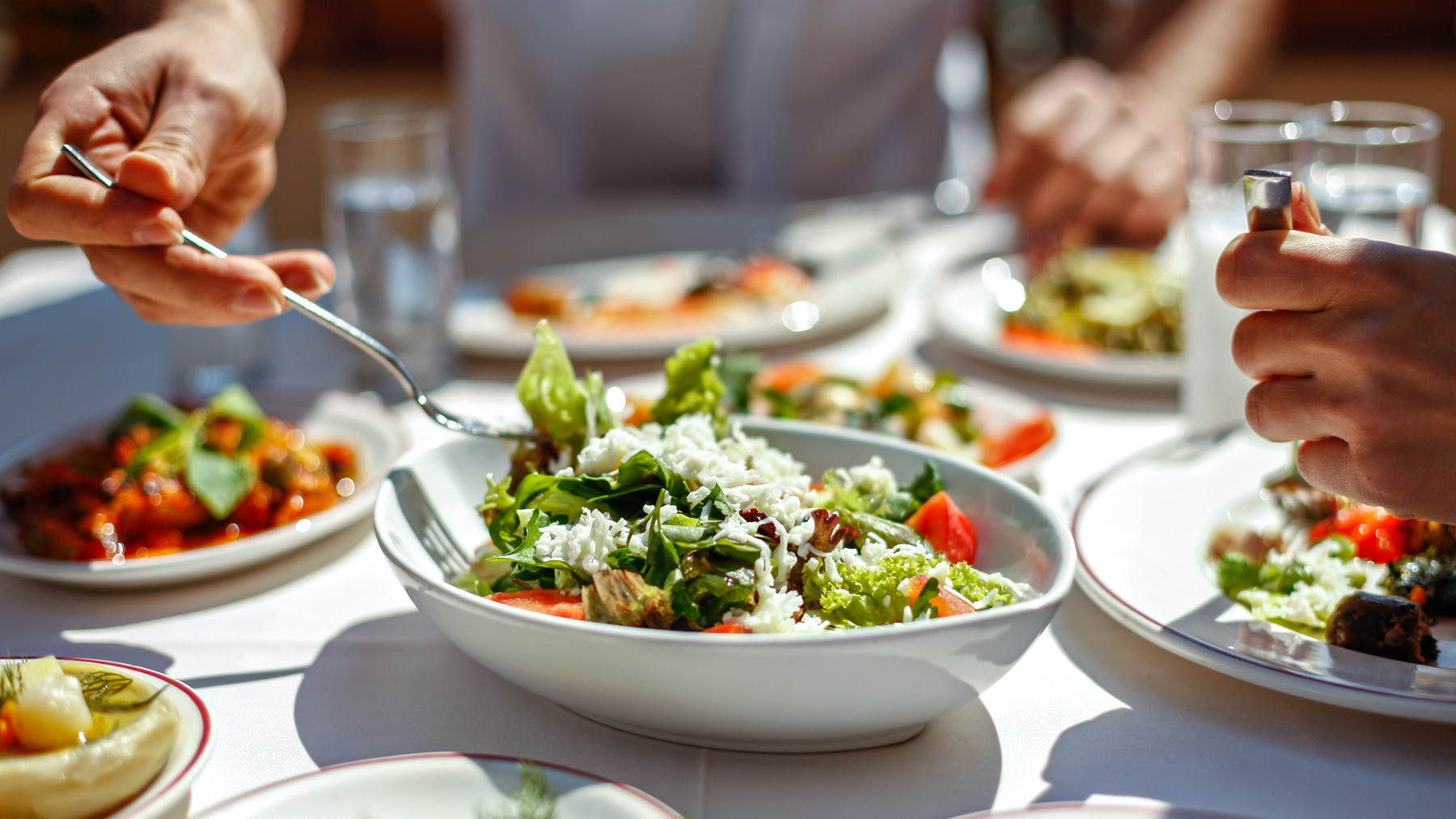What is the 80/20 rule diet?
What is the 80/20 rule diet and is it the balanced eating plan you've been looking for?


Start your week with achievable workout ideas, health tips and wellbeing advice in your inbox.
You are now subscribed
Your newsletter sign-up was successful
Wondering what is the 80/20 rule diet? If you've ever wanted to lose a little weight or even just improve your diet, you've probably tried plenty of fad diets. Of course, most fad diets end up being too restrictive or too prescriptive and the vast majority of people give them up within a month or two. But there is one diet that isn't quite so intensive. Unlike a lot of other trending diets, this diet is all about finding balance.
Well, this diet revolves around eating 80% "healthy" food and 20% "cheat" food. Unlike other diets, this diet doesn't require you to give up all junk food or to do without entire food groups. Instead, it's about being easy on yourself and finding a diet plan that you can sustain. You can even use it alongside the best protein powders for weight loss for extra benefits.
Ready to give it a try for yourself? Read on to find out: what is the 80/20 rule diet and how can you implement it in a safe, healthy way.
Our medical experts

Edibel Quintero graduated as a medical doctor in 2013 from the University of Zulia and has been working in her profession since then. Her focus as a doctor lies in obesity and nutrition, physical rehabilitation, sports massage and post-operative rehabilitation. Edibel’s goal is to help people live healthier lives by educating them about food, exercise, mental wellness and other lifestyle choices that can improve their quality of life.

Dr Shyamala Vishnumohan is a private-practise dietitian/nutritionist and Mum with a passion for evidence-based pregnancy nutrition. She holds a PhD in Food and Nutrition from The University of New South Wales, Sydney and has spent more than 15 years in the area of Nutrition researching plant-based foods and isolated nutrients (Folic acid) and their bioavailability (how much body can absorb).
How does the 80/20 rule work?
"The 80/20 rule states that you should get 80% of your daily calories from a healthy, nutritious diet and leave the remaining 20% for your favorite 'cheat meal' or dessert," explains Edibel Quintero, registered dietician & medical content writer. "It is a very rational and easy-to-apply nutritional system that allows you to enjoy food that may be considered unhealthy without any guilt. In other words, it helps you have a healthier relationship with food, as you don't restrict yourself too much and allow yourself to eat whatever you want."
So, what exactly does that look like in the real world? "Let’s do the calculations," says Dr Shyamala Vishnumohan, PhD, qualified Nutrition Scientist and founder of One to One Thousand Nutrition Clinic. "Eating breakfast, lunch, and dinner for a week equals 21 meals, so 80 percent would be roughly 17 healthy meals. That leaves you with 4 meals to indulge."
What's wonderful about the 80/20 rule is that it prioritizes filling your diet with healthy foods before you add less healthy foods into your diet. This way, you'll always get the nutrients you need first, before getting those tasty treats that we all crave from time to time.
Can you lose weight from the 80/20 rule?
If your goal is weight loss, the 80/20 rule may help you to lose weight safely and at a healthy pace.
Start your week with achievable workout ideas, health tips and wellbeing advice in your inbox.
"If you follow the 80/20 rule, you can definitely lose weight or keep it off if you don't exceed your daily caloric intake," Quintero says. "Otherwise, even if you were to eat 100% only healthy foods but in gigantic portions all the time, you will not avoid weight gain."
Vishnumohan also adds that this is a good diet to choose if you want to lose weight in a gentle way that doesn't involve guilt about what you're eating. "I love the fact that this diet is less restrictive and can help you to get rid of the 'guilt' when you treat yourself with a piece of cake," Vishnumohan says. "This is a good thing as feeling less guilty can actually encourage you to sustain the diet in the long run."
She adds, "Also when you prioritize nourishing foods, there is automatically less room for not so healthy foods." One 2014 study, Vishnumohan notes, even shows how removing feelings of guilt around certain foods can support long term weight loss.

What should your diet look like for the 80 part?
So, on a practical level, what should you eat if you are following the 80/20 rule diet – and what "healthy" foods are suitable for the 80% part? Well, there aren't any strict guidelines.
"There are no set rules for what you eat for the 80 part," Vishnumohan says. "Start with whole foods like vegetables, fruits, whole grains, healthy fats, legumes."
If you ensure that 80% of your meals are filled with fresh, unprocessed foods that don't contain too much salt, fat or sugar, chances are, you'll be on the right track.
How else can you create a healthier diet?
While the 80/20 rule diet offers balance, it isn't always as easy as it sounds. "In theory, the 80/20 diet sounds simplistic, however you must be organized and dedicate time for meal prep," Vishnumohan warns. "The 80/20 rule may not suit someone who needs to follow a heart healthy diet or manage blood sugar levels as you may need stricter control around saturated fat and processed sugars. Talk to a qualified dietitian to see whether this diet will suit you."
If this diet doesn't suit you or becomes too time consuming, there are other healthy ways to improve your diet without following any fad diets at all. "Instead of classifying food as healthy and unhealthy or good and bad, tune into your hunger and fullness cues and make small sustainable changes," she suggests.
Other ways to build a healthier diet without going on a strict diet include:
- Filling your cupboards and fridges with healthy food at the front. That way, you'll be less likely to reach for junk food when you crave a snack
- Add less salt to your meals
- Keep hydrated throughout the day
- Start the day with a healthy breakfast to avoid overeating later on.
Like most diets, the 80/20 rule diet has both pros and cons. While it does offer balance and longevity and it isn't quite as restrictive as some fad diets, it can take up a lot of time and energy.
We recommend chatting with your doctor or nutritionist before trying any new diets to make sure your new plan is safe and healthy.
If you have time to read up some more on healthy eating we have the answers to; why does your weight fluctuate so much? And should you eat before bed?
Meg is a freelance journalist and features writer based in the UK. She covers culture, entertainment, lifestyle and health. Her writing has appeared in Cosmopolitan, Shondaland, Healthline, HelloGiggles, Reader’s Digest, Apartment Therapy, and more. Meg has been interested in fitness for over a decade. She loves trying a wide range of exercise techniques including yoga, hiking, pilates and HIIT.
